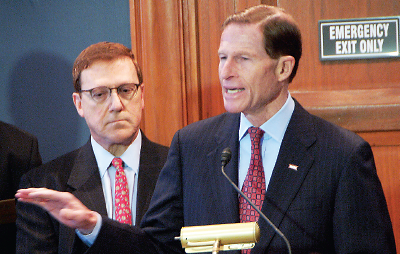As the waning days of the 113th Congress dwindled down to a precious few, the House of Representatives passed the Clay Hunt Suicide Prevention for American Veterans Act intended to help the Veterans Health Administration (VHA) attract and retain psychiatrists.
However, that step forward went for naught as the Senate first made its way through a $1 trillion budget bill and then failed to pass the $22 million Clay Hunt Act.
The bill was strongly supported through the legislative process by APA and by veterans’ service organizations such as the Iraq and Afghanistan Veterans of America, the Vietnam Veterans of America, the Wounded Warrior Project, the Veterans of Foreign Wars, and the Disabled American Veterans.
The Senate vote was blocked at the end by a “hold” placed on the bill by Sen. Tom Coburn (R-Okla.), who objected to the VHA’s management capability. A hold is a parliamentary procedure permitting a single senator to block a vote on the Senate floor.
“Given the extensive challenges at the VA, it is important to ensure this is not another false promise to our veterans that is not paid for or delivered upon,” said Coburn’s press secretary Elaine Joseph in an emailed response to questions from Psychiatric News. “Cost is also a concern, and the VA has proven that questions need to be asked before they are entrusted with the lives of our veterans or the money of taxpayers. Dr. Coburn wants to protect both.”
Coburn, a physician known around the Senate as “Dr. No” for his frequent blockade of legislation, retired at the end of the session, raising the chances for passage of similar legislation in the next Congress.
“Veterans groups have assurances from Sens. John McCain (R-Ariz.) and Richard Burr (R-N.C.) for a quick reintroduction in January,” reported Lizbet Boroughs, M.S.P.H., deputy director of APA’s Department of Government Affairs. “A bipartisan group of 20 senators currently support the bill, and Reps. Jeff Miller (R-Fla.) and Tim Walz (D-Minn.) will act quickly on the House side as well.”
Among other provisions, the bill increases the options available to the VHA for hiring more psychiatrists.
“The shortage of psychiatrists in the VHA is reflective of the national shortage,” said VHA psychiatrist Jenny Boyer, M.D., Ph.D., J.D., of Tulsa, Okla., and speaker of APA’s Assembly, in an interview. “It is no surprise that there are difficulties with access because we simply do not have enough psychiatrists to meet the ever-increasing demand for their services.”
The Clay Hunt Act was named for a U.S. Marine veteran of the Iraq and Afghanistan wars who died by suicide in 2011.
“The obstacles to care that Clay met at the VHA are not acceptable,” said Susan Selke, Clay Hunt’s mother, at a news conference three days before the vote. “Veterans need access without fighting a battle for it.”
To encourage more psychiatrists to make their careers in the VHA, the act sets up a three-year demonstration program permitting the system to recruit at least 10 psychiatrists each year for full-time, permanent positions by offering a medical school loan repayment program. For their part, psychiatrists entering the program would agree to a minimum of two years of service with the VHA in return for a loan repayment of $30,000 a year.
The act also included provisions for annual evaluations of the VHA’s and the Department of Defense’s mental health care and suicide prevention programs. Other sections would help veterans move from active duty to civilian life by improving access to mental health services using peer support specialists, community outreach teams, and nonprofit mental health organizations.
“Veterans have given their service for our country, and now is the time to repay that service by overcoming the chronic shortage of VHA psychiatrists,” said APA CEO and Medical Director Saul Levin, M.D., M.P.A., at the news conference. ■
A summary of the Clay Hunt Suicide Prevention for American Veterans Act can be accessed
here. APA’s statement of support for the legislation is available
here.

